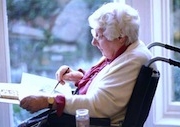Physician Associates: a personal perspective
Physician Associates (PAs) were introduced in the UK in 2003. The NHS describes the profession as aiming to support doctors in the diagnosis and management of patients. Anaesthesia Associates (AAs) have a similar aim in supporting anaesthetists. Over recent months and years, there has been significant controversy over how these professions are or should be regulated and deployed. These are important discussions, particularly when aiming to centre the best interests of patients, and we pray for wisdom for those involved.
This blog does not aim to propose answers to the nuance of current debates. Rather, it flows from the conviction that amidst these important discussions, it is also important that, as Christians, we do not show partiality in how we value, support, and pray for colleagues in different professions. Those working as PAs and AAs must be valued personally. We are grateful that a small number of Christians working in these professions have, over several years, joined with local CMF groups in prayer and fellowship and that some have become associate members of CMF. Now that PAs and AAs are beginning to be regulated by the GMC, this makes them eligible for full CMF membership.
Having recently met and chatted with one such member I (Susan) thought it would be encouraging for more of us to hear Bim’s story; to be encouraged by his faith and encouraged in prayer for him and also for other PAs and AAs.
Bim has kindly answered some of my questions here:
Susan: What was your background before being a PA and how did God lead you to change your career path?
Bim: Before becoming a PA, I was a Clinical Scientist in a Paediatric Haematology department. My undergraduate and postgraduate degrees were in molecular genetics, and my work focused on the genetic diagnosis of bleeding and thrombotic disorders. Initially, the diagnostic tests were technically challenging, interesting, and fulfilling. Subsequently, as the testing became more automated, I found less satisfaction in the role. Also, the job comprised processing blood samples with minimal patient contact. Together with other work challenges, which included two months’ leave due to mental health issues, I believe that God was prizing me out of my comfort zone.
God led me to change my career path through a series of steps. I remember one encounter about ten years ago that encouraged me. I was sitting near the back of a worship session at a Christian conference when a steward touched me on the shoulder and said (echoing the words of Psalm 37:4) ‘I believe God is going to give you the desires of your heart’. Around the same time, I attended a course at my Church to help us discover our strengths. During the course, we wrote on an index card what we hoped God would do for us that year. I subsequently forgot about this and a year later received the card in the post on which I had simply written ‘£’ and ‘Physician Associate’. I knew I wanted to do the PA course, but did not have the necessary funds, and I was the main breadwinner for our family of five.
I applied for and was accepted onto a Physician Associate course, and I went on to experience God’s timely support and financial provision, both for the duration of the self-funded course and for my family, which at the time included university-age children. The local Church family were also invaluable, supporting me emotionally and in prayer while I undertook the two-year diploma in PA studies, which was very intense as well as physically and mentally demanding.
Susan: What were some of the challenges you faced working as a PA? What were some of the joys?
Bim: My first job was across two GP practices. I was welcomed as a member of the medical team and gained the clinical contact I had desired. I also enjoyed working more closely with doctors, nurses and other healthcare professionals. One of the practices already had a PA who was well-established and supportive; there was a good understanding of the remit and limitations of the role. However, the other practice had not employed a PA previously, and there was limited understanding of the role. This is a common challenge for many PAs, and the onus can fall on the PA to clarify what they are permitted to do and to enforce boundaries when there is an expectation to perform a task beyond their remit. It was challenging to consistently ensure the appropriate level of supervision, given the designation of PAs as a dependent profession.
Susan: How did it feel for you when there were negative discussions about PAs from the press or colleagues? How have you tried to respond as a Christian?
Bim: The negative rhetoric reported in the media inevitably has a negative impact on morale, which is already low in the NHS. It has been quite hurtful reading some of the inappropriate and unprofessional language used against the PA profession as well as individual PAs. A recent Times article has reported that PAs have been subjected to death threats, calls for acid attacks and malicious leaking of personal data on online doctors’ forums. It further describes the impact of personal attacks on PAs in the form of harassment, bullying and intimidation to the point that mental health in the profession has become an acute issue.
As to the Christian Perspective, in Ephesians 4:31-32, the Apostle Paul exhorts us to ‘get rid of all bitterness, rage and anger, brawling and slander, along with every form of malice. Be kind and compassionate to one another, forgiving each other, just as in Christ God forgave you’. Our primary identity should be in Christ, not in worldly status, accolades or achievements – this has been comforting to me personally, knowing that my identity is in Christ. I also believe our work relationships with all staff should be characterised by kindness and compassion and this is something I tried, with God’s help, to live out.
PAs are real people, not just a job title. I know God can bring good things out of hard situations. My hope is that the wide media exposure and discussions involving the relevant professional bodies will lead to greater clarity around PAs and their role. I hope that this will promote understanding from both colleagues and patients regarding PA training, their abilities and limitations, and that this will lead to improvements in and the fostering of more appropriate professional relations and interactions between staff groups.
Susan: How would you encourage CMF members to be praying for PAs at the moment?
Bim: The PA profession is currently undergoing statutory regulation by the GMC (since 2011, PAs have had Voluntary Registration with the Royal College of Physicians Faculty of Physician Associates). Wes Streeting, the Health Secretary, has recently instituted an independent review of PAs (as well as AAs), including their scope of practice, which should bring further clarity regarding what PAs are able to do and should also provide further assurance regarding patient safety.
However, from a PA perspective, further restrictions on the PA role and the requirement for closer supervision will reduce the benefits for the employer in recruiting a PA as opposed to another healthcare professional able to undertake a similar role. This will particularly impact primary care, where patients present with undifferentiated conditions. This will in turn impact on job security and employment opportunities. There have already been some PA redundancies from surgeries relating to scope guidance produced by the BMA and the RCGP.
As Christians in healthcare, whatever our role, I trust and pray that we would be kind to everyone we meet each day, whether colleagues or patients. I would encourage CMF members to be praying for PAs at the moment. In common with other healthcare professionals, PAs have studied hard and made sacrifices to qualify in their chosen vocation; they, too, have families and financial responsibilities and are now facing a time of real job uncertainty. Pray for the current PA students too, graduating from an intense, self-funded two-year postgraduate course followed by national exams to face an uncertain job market.
Please pray also for the process of statutory regulation, for the reviews being undertaken, and for the negotiations between the various professional bodies involved, so that they would be civil and remain professional. Pray that going forward, the current turbulence will ‘work together for good’, perhaps through bringing about clearly defined roles for PAs, such that they are welcomed, accepted and able to contribute to good patient care. Pray that the negative, antagonistic rhetoric would give way to harmonious work relations among doctors, PAs, and other healthcare professionals, keeping the public and patients as the focus.
Bimal Theophilus was interviewed by Susan Marriott, CMF’s Head of Public Policy











Leave a Reply
Want to join the discussion?Feel free to contribute!